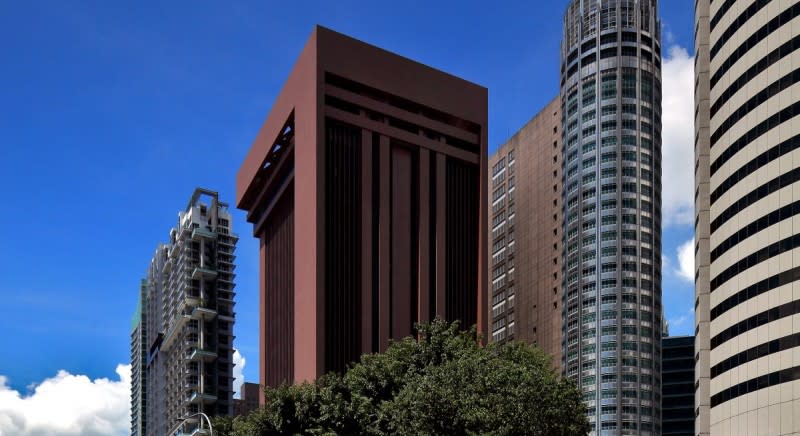MAS to mobilise capital for net zero transition through public and private partnerships

During the conference, the MAS announced the launch of a $5 million grant to fund sustainability projects.
The Monetary Authority of Singapore (MAS), with knowledge partners McKinsey & Company and Convergence Blended Finance and supported by the Glasgow Financial Alliance for Net Zero (GFANZ), hosted the inaugural Transition Finance Towards Net Zero (TFNZ) conference on Oct 4.
The conference is said to provide a platform to galvanise key public and private sector stakeholders to mobilise capital to help economies and corporates decarbonise.
At the conference, the MAS injected seed capital into an Asia Climate Solutions Design Grant hosted by Convergence Blended Finance. This will provide early-stage grant funding for proof of concept and feasibility studies on innovative and scalable blended finance solutions to fund sustainability projects. It will also mobilise capital into high impact sectors that are significantly under-capitalised in Asia such as early-stage climate adaptation and mitigation technology, as well as access to clean energy.
In addition, the conference saw the launch of an initiative by the GFANZ Asia-Pacific (APAC) Network to help guide financial institutions on how they can facilitate the managed phase-out of coal power generation in the APAC region.
The GFANZ APAC Network was launched in June with its central office in Singapore. It will support the expansion of net zero finance in Asia-Pacific and help accelerate the region’s transition to a net zero economy.
The Asian Development Bank and MAS will participate in this initiative. Financial institutions who are keen are also welcome to take part.
According to Ravi Menon, managing director of MAS, Asia is “where the battle against climate change will be won or lost”.
“Asia accounts for half of the world's greenhouse gas emissions and is home to about 60% of the global population. The issues of transition are most acute in Asia, with growing affluence and rapid urbanisation alongside the urgent needs of poverty alleviation,” he says in his opening remarks at the conference.
“About 85% of the energy consumed in Asia comes from fossil fuels and Asia’s demand for energy is projected to double in 2030. Asia is also most vulnerable to climate change, with large populations living close to locations prone to drought, floods, and rising sea levels. Finally, Asia is diverse – across stages of economic development, and across a variety of climate related risks and transition challenges,” he adds. “If we can successfully help Asia transition to net zero, it will go a long way in getting the world to net zero.”
Oliver Tonby, senior partner at McKinsey Singapore, says, “The transformation of the global economy needed to achieve net-zero emissions by 2050 would be universal and significant, requiring $9.2 trillion in annual capital spending on physical assets until 2050.
He adds, “Catalysing effective capital reallocation and new financing structures, including deploying collaborations across the public and private sectors, is required at unprecedented scale and speed. Forums like this, that bring together government and business leaders from Asia and around the world, are a vital step in fostering discussion and finding solutions to complex and challenging transition issues.”
Joan Larrea, CEO, Convergence, says, “Blended finance, through strategic use of catalytic funding, can provide critical de-risking for private sector investment and improve project bankability, and play an impactful role in addressing the financing gap for the net zero transition. We want to actively promote the creation of more blended finance solutions and are excited to see concrete efforts to grow the blended finance ecosystem in this region.”
Menon continues: “MAS has been working with like-minded partners to facilitate and scale such blended finance solutions. This conference is part of that effort and we are thankful to the many thought leaders, policy makers, and practitioners who participated and generously shared their insights and perspectives.”
The conference featured key speakers such as Tharman Shanmugaratnam, senior minister and coordinating minister for social policies, and chairman of MAS, Dr Rania Al-Mashat, Minister of International Cooperation, Egypt and Kristalina Georgieva, the managing director of the International Monetary Fund (IMF). Other key speakers include Professor Lord Nicholas Stern, chairman, London School of Economics Grantham Research Institute, and Mark Carney, special envoy on climate action and finance, United Nations & co-chair, Glasgow Financial Alliance for Net Zero.
See Also:
Click here to stay updated with the Latest Business & Investment News in Singapore
Singapore regulator warns crypto firms to curb their enthusiasm
Government releases yet another set of property cooling measures amid rising market interest rates
MAS October tightening may not be enough for Singdollar to outpace the US dollar
Get in-depth insights from our expert contributors, and dive into financial and economic trends

 Yahoo Finance
Yahoo Finance 